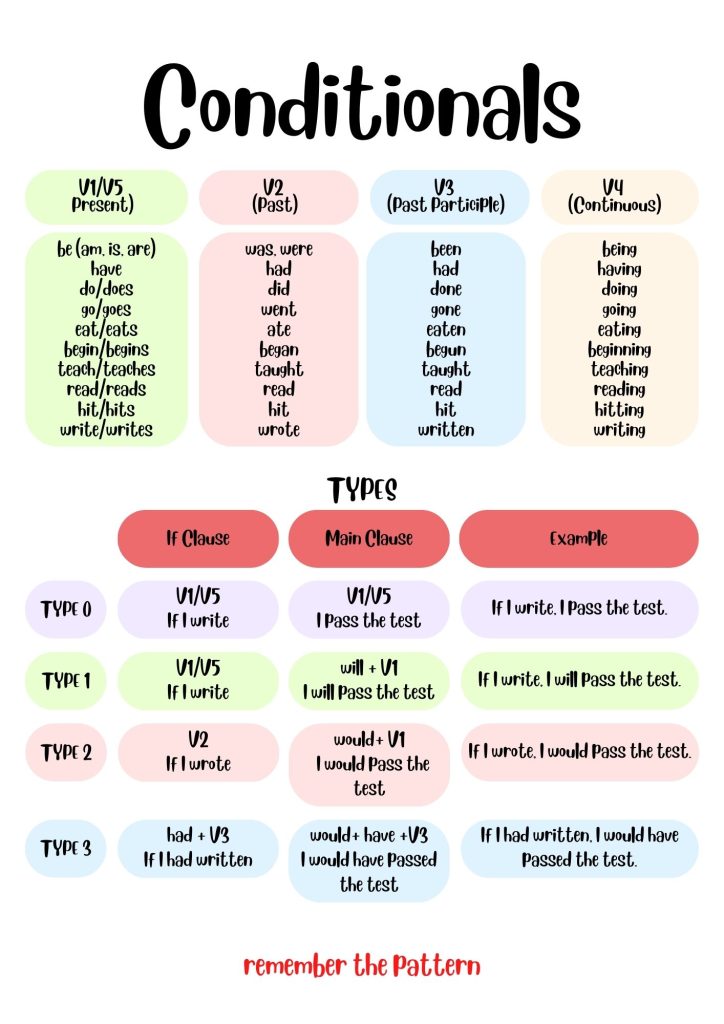Conditionals

What are Conditionals?
Simply put, conditionals are sentence structures used to express hypothetical situations, possibilities, or consequences based on certain conditions.
They allow us to talk about what could happen if a specific condition is met. Conditionals typically consist of two main clauses: the “if” clause (also known as the conditional clause) and the “main” clause (also known as the result clause). The structure and meaning of conditionals depend on the type or “zeroth,” “first,” “second,” “third,” and “mixed” conditionals.
NOTE: For SEE, we will focus on types “zeroth,” “first,” “second,” and “third.”
Zero Conditional:
The zero conditional is used to talk about general truths, scientific facts, or situations that are always true when a specific condition is met. It describes cause-and-effect relationships.
Structure: If + present simple, present simple
Example: If you heat ice, it melts.
First Conditional:
The first conditional is used to talk about real possibilities or likely events in the future. It implies that there is a reasonable chance of the condition being fulfilled.
Structure: If + present simple, will + base verb
Example: If it rains, I will stay at home.
Second Conditional:
The second conditional is used to talk about hypothetical or unlikely situations in the present or future. It implies that the condition is improbable or unlikely to be fulfilled.
Structure: If + past simple, would + base verb
Example: If I won the lottery, I would buy a house.
Third Conditional:
The third conditional is used to talk about past situations that didn’t happen, expressing regrets or imagining different outcomes in the past.
Structure: If + past perfect, would have + past participle
Example: If I had studied harder, I would have passed the exam.
CONDITIONALS
(If / When)
Verb Tense
| V1/V5 | V2 | V3 |
|---|---|---|
| eat/eats | ate | eaten |
| Present | Past | Past Participle |
Conditionals
| TYPE | IF-CLAUSE | MAIN CLAUSE | EXAMPLE |
|---|---|---|---|
| 0 | V1/V5 | V1/V5 | If I heat ice, it melts. |
| I | V1/V5 | will + V1 (shall, may, can, must) | If I heat ice, it will melt. |
| II | had or V2 | would + V1 (could, might) | If I heated ice, it would melt. |
| III | had + V3 | would + have + V3 (could, might) | If I had heated ice, it would have melted. |



